Diferença entre dados, informação e conhecimento
Existe um conceito muito difundido no mundo corporativo contemporâneo que é o da Gestão do Conhecimento. Conceitualmente este termo é cercado de problemas, mas tratar deste assunto não é o objetivo deste texto.
Apesar da minha total discordância sobre a coerência teórica do termo, uma coisa é certa: o conhecimento é provavelmente o maior combustível do nosso mundo contemporâneo. Já o é hoje e aparentemente será ainda mais no futuro. b
Mas antes, o Projeto Conectando
Esse texto é o início de uma série de conteúdos que eu dei o nome de Projeto Conectando.
Este projeto foi sendo desenvolvido meio sem querer, para ser bem sincero. Alguns anos atrás, quando descobri a Biblioteconomia, eu enxerguei uma relação muito estreita entre o trabalho do Bibliotecário e o que eu fazia no SEO.
Quando eu entrei na faculdade, comecei a conectar na minha cabeça tudo o que eu estava aprendendo com o que eu trabalhava no dia a dia. Então comecei a escrever alguns textos sobre essa conexão que eu via com o objetivo de me ajudar a fixar o que estava aprendendo.
E foi surgindo o Projeto Conectando, que vai conectar o SEO a Biblioteconomia com artigos, vídeos e áudios que falam sobre a base da biblioteconomia e sua íntima relação com o trabalho de otimização de conteúdo para internet.
Inicialmente eu vou falar sobre as bases da Biblioteconomia: indexação, categorização, classificação e muito mais, sempre buscando a relação dessas práticas com o que o Google faz para organizar informação na web e nós, SEOs fazemos para otimizar.
A Confusão entre dados, informação e conhecimento
Existe uma confusão, geralmente vista no senso comum, entre esses três componentes essenciais da nossa economia atual. Confundimos dados com informação e informação com conhecimento, conhecimento com dados, e por aí vai.
Mas as Ciências da Informação (CI) podem nos ajudar a clarear nossas ideias e colocar cada coisa no seu lugar.
E essa clareza, do que significam dados, informação e conhecimento, não serve somente para o nosso deleite intelectual. Ela é importante para entendermos outro conceito, que se bem entendido e aplicado, abre um novo mundo de entendimento para quem trabalha otimizando conteúdo na web.
Esse conceito é o de Fluxo da Informação. Mas sobre ele vamos falar mais no futuro. Enquanto isso, vamos recorrer a teoria para entender algumas coisas. Prometo tentar deixar as coisas mais leves de entender.
Recorro a dois pesquisadores, Davenport e Prusak (1998), para iniciar a busca do entendimento e para esclarecer essa enorme confusão entre os conceitos de dados, informações e conhecimento. Apesar dos autores afirmarem que é possível uma organização gerar conhecimento (o que eu discordo, já que ela só gera informação*), podemos recorrer a eles para iniciar o caminho da descoberta dos conceitos.
*Deixando claro: para mim o processo é o seguinte: dados são extraídos da interação com o mundo físico e quando eles ganham relevância são transformados em informação. Informação pode ser armazenada em ambientes de registros, sendo externos a nós, seres humanos. Agora, quando nós, humanos, consumimos informação e a contextualizamos pode ocorrer o fenômeno de geração de conhecimento, que é subjetivo, particular e pertence a cada indivíduo. Na troca entre seres humanos somente a informação é passada de um para o outro, visto que é o contexto, que é particular de cada um, é que retransforma informação em conhecimento. Portanto é impossível fazer gestão do conhecimento, dado que ele é particular de cada ser humano.
O que são dados segundo as Ciências da Informação
Podemos entender dados como o elemento fundamental da informação. Eles são gerados através da observação do mundo como ele é. Em nosso mundo a simples interação de pessoas com seu meio ambiente gera dados.
Pense em quantos dados o seu celular ou relógio gera em uma simples corrida no final do dia: seus batimentos, o trajeto que correu, quantos quilômetros, cálculos de consumo de calorias e muito mais.
Dados pode ser estruturados com muita facilidade, principalmente em um mundo onde a computação é onipresente, mas por si só não tem significado nenhum. Uma coluna com números em uma planilha não significa nada se você não souber o que eles significam.
Mas uma vantagem enorme é que podemos transferir dados com muita facilidade, seja entre sistemas ou entre pessoas. Claro, para isso acontecer precisamos seguir alguns processos e implementar algumas políticas de gestão.
Portanto dados soltos são aleatórios e quando não são objetos de análise, não geram informação. Mas eles são fundamentais por formarem a base sobre a qual começamos a construir a informação. Quando tratamos os dados obtidos, agregando relevância e propósito a eles, começamos a construir algo além de números, letras e códigos.
Para as CI, dados são objetos de estudo por conta de sua natureza, representação, armazenamento, recuperação, análise e uso. E aqui temos a primeira relação direta com o SEO.
Qual a relação disso tudo com o SEO?
Quando preparamos um relatório para um projeto precisamos entender com o que estamos lidando. Se eu gerar uma planilha, colocar um nome genérico e entregar ao meu gestor, o que vai acontecer?
É por isso que usamos Dashboards. É por isso que livros como Storytelling com dados foram escritos, para nos ajudar a entender que dados são só o início da história que precisamos contar. E mais, que precisamos atentar para a qualidade do armazenamento destes dados, de como vamos representá-los, como vamos recuperá-los quando for necessário e principalmente, qual o uso que vamos fazer deles.
Contar uma história a partir dos dados que temos é a maneira de mostrar o que de fato aconteceu e como o projeto precisa evoluir para ter sucesso. E isso tem muita relação com o SEO.
Os conceitos de representação, armazenamento e recuperação terão seus textos específicos em nossa série. Esses três elementos criam uma conexão intima entre Biblioteconomia e SEO e vão ser tratados com carinho por mim, e podemos lançar mão das teorias, métodos e técnicas para entender com mais profundidade esses temas.
Voltando aos dados
Em resumo, quando usamos os processos corretos para fazer a gestão e análise dos dados, conseguimos transformá-los em informação útil e relevante, porque como nos lembra Silva (2004), dados representam um ou mais significados de um sistema que isoladamente não pode transmitir uma mensagem ou representar algum conhecimento.
Eu complementaria dizendo que dados sem o devido tratamento são inúteis, só geram problemas de armazenamento e não nos ajudam a recuperar ou gerar informação.
Qual é a definição para Informação segundo as Ciências da Informação
Muitas áreas do conhecimento estudam esse tema. A Comunicação Social a analisa sobre o ponto de vista dos processos de comunicação e transmissão. A filosofia pode olhar para ela buscando entender o seu papel de dar forma a matéria, formatando o mundo, seja ele material ou o das ideias.
Mas aqui em nosso texto, vamos ficar com o ponto de vista das Ciências da Informação, que por si só já nos dá muito campo para reflexão e estudo.
Todas as pessoas precisam de informação, seja para se locomover, comprar alimentos, dirigir um caminhão, ou qualquer outra coisa. Para cada decisão a tomar é preciso informação. Tal como os indivíduos, as organizações, sejam elas escolas, hospitais, empresas de engenharia, ou de qualquer área de negócios, sem exceção, todas precisam de informação.
CUNHA; AMARAL; DANTAS, 2023, p. 3
Os autores continuam citando que essa frase pode passar a falsa impressão de que é fácil entender informação, porque todos nós precisamos dela, o tempo todo, cada vez mais. Mas não é bem assim.
Para mim, o caminho mais simples é fazer é iniciar pelo entendimento do que são dados e, partindo deles, entender o que é informação.
Uma definição usual é a de que informação são dados contextualizados e transferidos segundo a mediação de humanos para humanos, e mais atualmente de humanos para sistemas e de sistemas para sistemas.
Já o Dicionário de Biblioteconomia e Arquivologia de Murilo Bastos da Cunha e Cordélia Robalinho de Oliveira Cavalcanti fala em “Registro de um conhecimento que pode ser necessário a uma decisão. A expressão ‘registro’ inclui não só os documentos tipográficos, mas também os reprográficos, e quaisquer outros suscetíveis de serem armazenados visando sua utilização.” Essa definição foca na necessidade da informação, um assunto que já tratei nesse texto: Nova proposta de Gestão de Conteúdo na Web.
Na Ciência da Informação o conceito de informação é frequentemente usado no sentido de conhecimento comunicado. Este conceito ganhou relevância principalmente a partir do final da Segunda Guerra Mundial com a disseminação global do uso das redes de computadores. (CAPURRO; HJORLAND, 2007)
Carlos Alberto Ávila Araújo cita no artigo “O conceito de informação na Ciência da Informação”, a conceituação de informação criada por Capurro (2003) onde o autor “identifica a existência, na CI, de três grandes formas de se compreender a informação: como algo físico, como algo associado a uma dimensão cognitiva e, enfim, como fenômeno de natureza intersubjetiva, social. Argumenta o autor que essas três formas de se entender a informação não se manifestaram de maneira específica em uma ou outra subárea do campo. Antes, atravessaram as várias subáreas (daí porque, no entender dele, constituiriam “paradigmas”).”
Segundo o Tesauro Brasileiro da Ciência da Informação, a informação tem 13 atributos, sendo eles:
- Ambiguidade
- Complexidade
- Credibilidade
- Exatidão
- Incerteza
- Pertinência
- Precisão
- Redundância
- Relevância
- Similaridade
- Superposição
- Tematicidade
- Validade
A informação, pode é claro, ser considerada uma realidade objetiva. Esse algo que, através de um sistema de símbolos, consegue ser capturada, armazenada, representada e recuperado por entidades, ou autores, com capacidade técnica e cognitiva de interagir e extrair sentido dessa interação.
Qual a relação disso tudo com o SEO?
O primeiro ponto que eu quero salientar é sobre o primeiro atributo da informação, a ambiguidade. No livro Ontologia: ambiguidade e precisão, Marcelo Schiessl e Marisa Brascher afirmam que a ambiguidade é um grande obstáculo para a recuperação de informação. E a recuperar informação é o que os buscadores fazem.
Portanto, toda e qualquer trabalho que fizermos no SEO deve mirar esse atributo da informação, a ambiguidade. Os mecanismos de buscas, atualmente, atuam como gatekeepers. Eles estão entre nossos conteúdos e as pessoas que pesquisam necessitam da informação contida neles. Entender que os algoritmos têm dificuldade em lidar com a ambiguidade é um passo importante no entendimento de como funcionam os mecanismos de buscas.
Tratar a informação presente em seus projetos de forma clara e objetiva é ajudar esses mesmos buscadores a terem mais certeza do que seu conteúdo trata. E trabalhar com conhecimento deste processo te ajuda fugir da incerteza, tornando mais claro para as ferramentas de recuperação de que assunto especificamente estamos falando.
Entender os conceitos de informação te ajudam a otimizar melhor? Me responde você.
Mas isso vai ficar mais claro quando tratarmos do fluxo da informação em outro texto.
O que é conhecimento para as Ciências da Informação
Conhecimento pode ser entendido como informação valiosa e com significado, mas de difícil estruturação. Conhecimento é resultado de ações e interações entre sujeitos e é frequentemente tácito e de difícil transferência.
Mas para as Ciências da Informação definirem conhecimento não é um trabalho simples. Nas minhas pesquisas para escrever este texto encontrei um material que me ajudou muito a entender essa dificuldade e trilhar um caminho mental interessante no entendimento sobre o conhecimento humano.
Te convido a refazer ele comigo.
A primeira coisa que tenho para lhe dizer é que o problema de lidar com o conhecimento não é novo. Platão em sua Teoria do Conhecimento que dizia que “o conhecimento humano integral fica nitidamente dividido em dois graus: o conhecimento sensível, particular, mutável e relativo, e o conhecimento intelectual, universal, imutável, absoluto, que ilumina o primeiro conhecimento, mas que dele não se pode derivar.” (Diegues, 2023)
E algo que aprendi é que as Cis estão intimamente interessadas nos modos subjetivos e objetivos do pensamento. A subjetividade não é algo que tratamos muito na Web. Lidamos muito bem com dados, temos alguma habilidade com a informação e conteúdo, mas quando precisamos falar sobre a subjetividade do pensamento humano, a maioria de nós se perde.
Eu entendi isso quando escrevi o artigo com uma nova proposta de criação de conteúdo baseada no fluxo de informação da Kuhlthau. Algumas pessoas da nossa área entraram em contato comigo curiosas para entender como usar esses aspectos na criação de conteúdo. As conversas que tive foram muito interessantes.
Mas voltando ao conhecimento, quero falar de outro filósofo, o Karl Popper que diz que “o fenômeno do conhecimento humano é sem dúvida o maior milagre do nosso universo.” Mas a sua maior contribuição para entendermos o conhecimento é a Teoria dos Três Mundos de Popper:
A nossa realidade consiste … em três mundos ligados entre si e de algum modo interdependentes, e que em parte se interpenetram. Estes três mundos são: o Mundo Físico, Mundo 1, dos corpos e dos estados, fenômenos e forças físicas; o Mundo Psíquico, Mundo 2, das emoções e dos processos psíquicos inconscientes; e o Mundo 3 dos Produtos Intelectuais
Karl Popper
O Mundo 1 é o mais simples e claro de ser compreendido e não necessita de explicação, nós lidamos com ele o tempo todo, sentindo a sua influência em tempo real.
O Mundo 2, o psíquico, do conhecimento subjetivo, constituído por nossas emoções e processos inconscientes é pouco explorado, mas como falei anteriormente, o seu estudo pode abrir um vasto campo de possibilidades para a nossa área. A psicologia pode nos ajudar a navegar por esse grande mundo de uma forma mais consistente.
Já o Mundo 3, o mundo do conhecimento objetivo, dos produtos da mente humana, que está registrado em línguas, artes, ciências, tecnologias é o nosso campo de atuação mais imediato. Ele é a soma dos Mundos 1 e 2 e é a personificação do pensamento humano, e se realiza nos artefatos que criamos e espalhamos pelos Mundos.
O conhecimento objetivo, que é a totalidade de todo o pensamento humano incorporado nos artefatos humanos, como documentos, a música, as artes, as tecnologias é o que chamo genericamente de conteúdo. E aqui começamos a falar de SEO.
Hierarquia entre Dados, informação e Conhecimento
Preparei esse gráfico usando o agente+semântico especialmente para resumir os principais pontos tratados aqui no nosso artigo. Você pode baixar, compartilhar ou salvar para revisitar o que leu aqui.

Qual a relação disso tudo com o SEO?
Como os conceitos de conhecimento podem ajudar a você a otimizar melhor? Se o Mundo do Conhecimento Objetivo trazido por Popper é onde nós unimos o que nós humanos sonhamos, pensamos, idealizamos ao mundo físico, é ele o nosso campo de trabalho.
Mas não estamos perdendo algo? Para onde estamos olhando que esquecemos do humano que tem necessidades, desejos e vontades e faz uma busca para resolver suas questões (sejam elas do Mundo 1 ou do 2)?
Tornar um conteúdo ótimo é mais que formatar um dado para apresentá-lo bem ou contar uma história com ele, transformando em informação relevante. É preciso entender que ser humano está fazendo a pergunta que precisa da resposta que você criou.
Ele está aí, no mundo, precisando de respostas. Nós estamos dando as respostas que eles precisam?
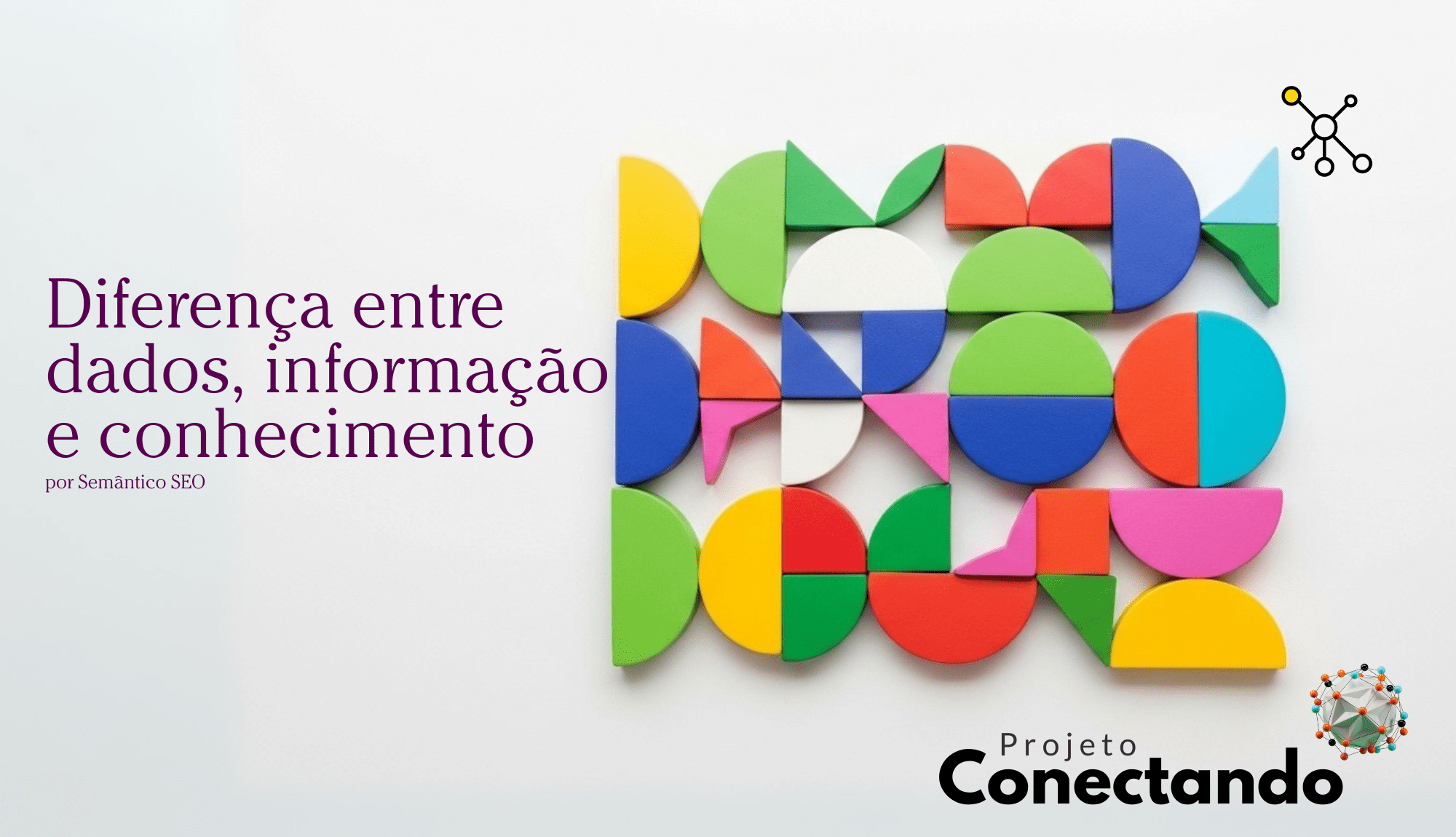
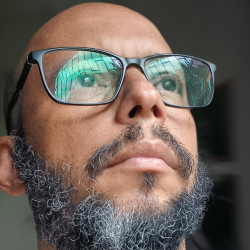
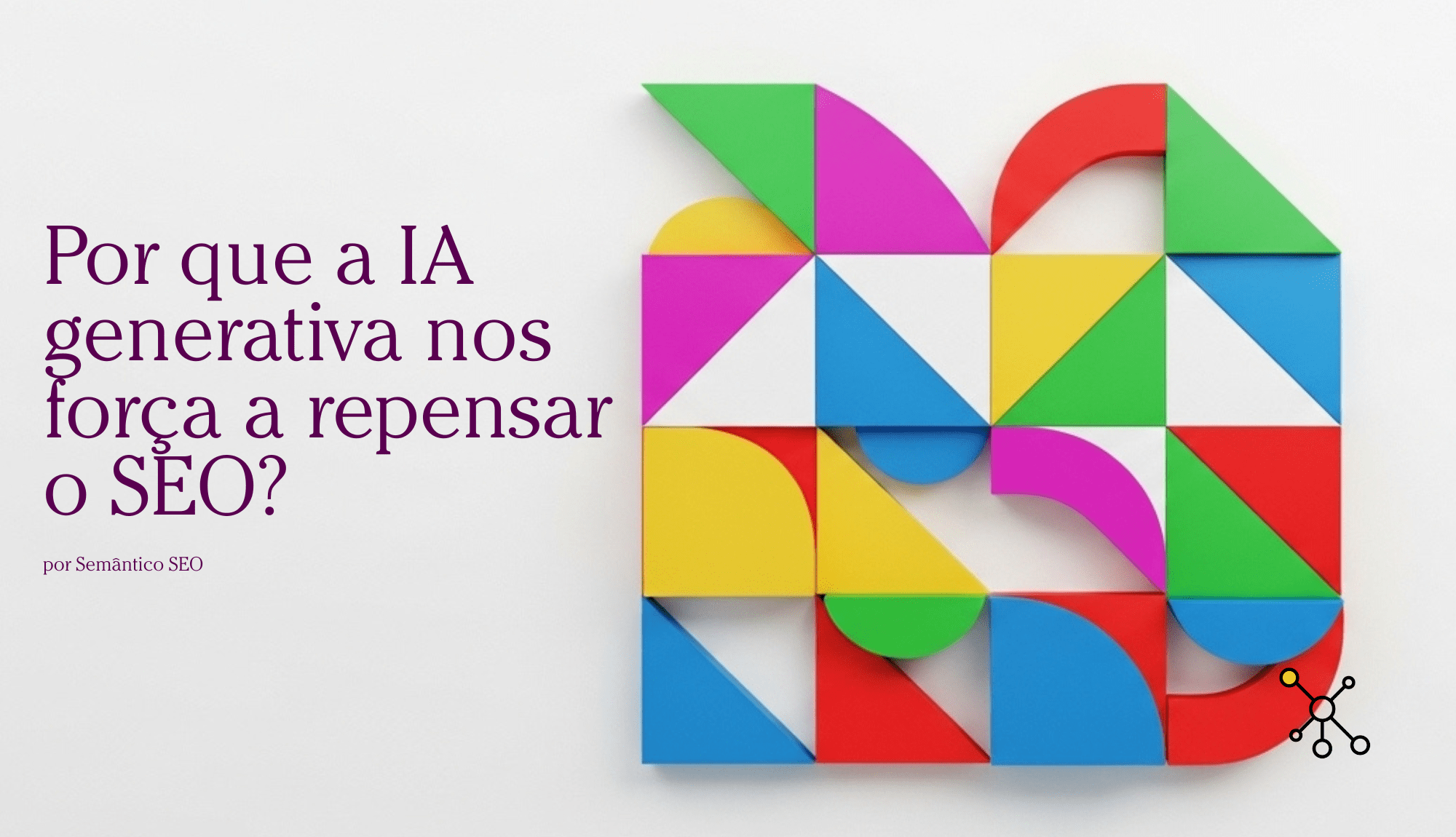
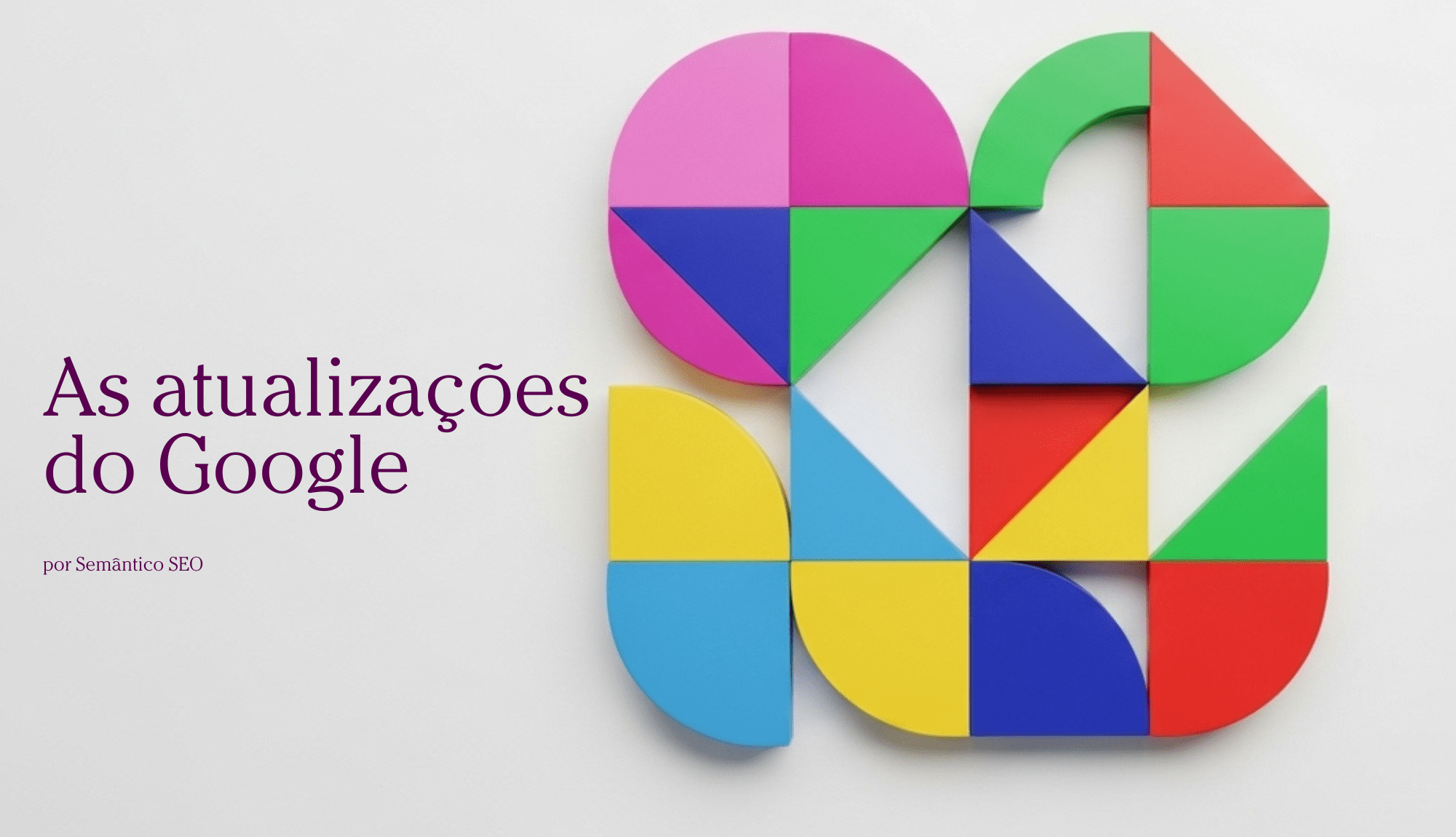
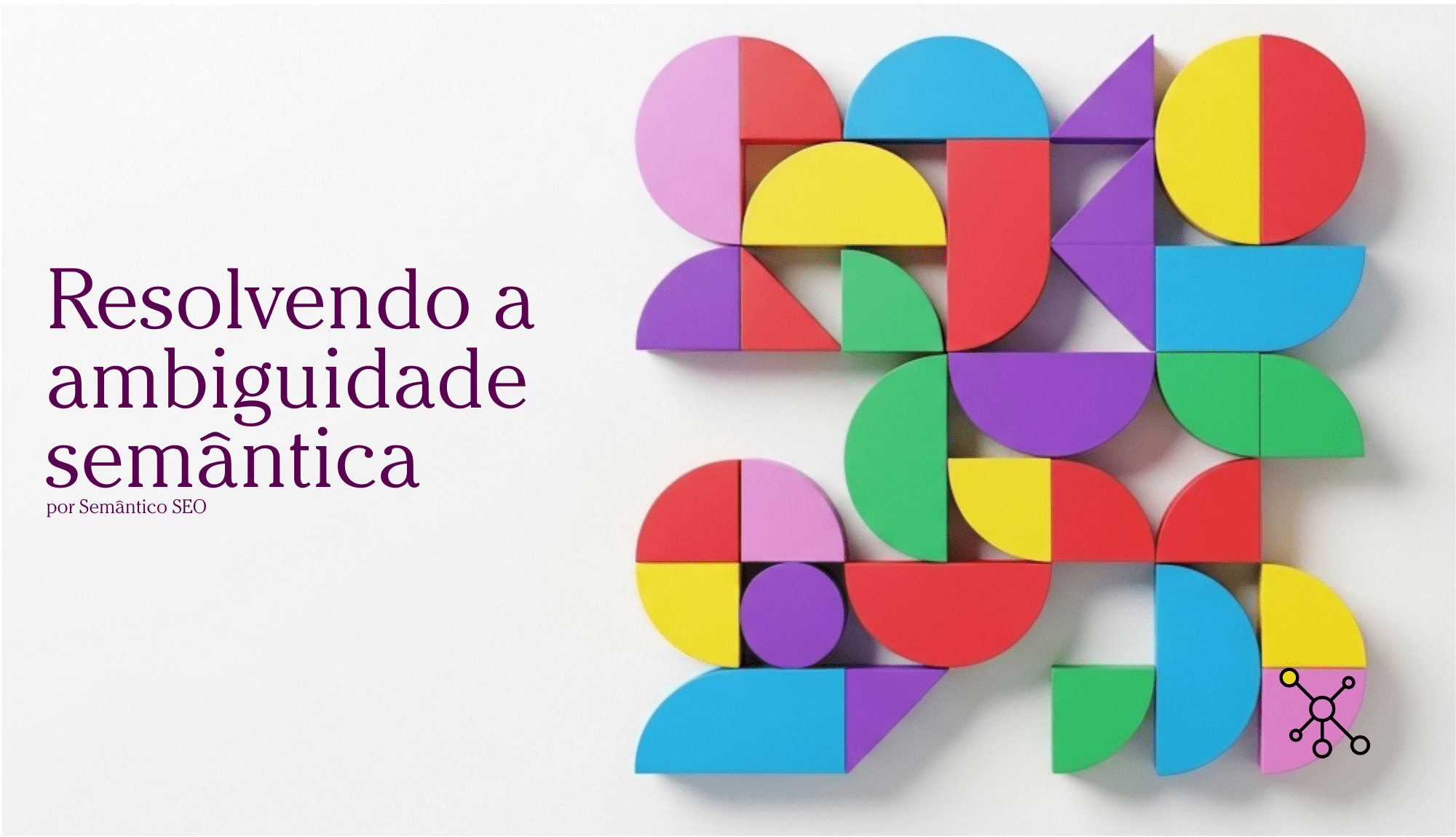
Publicar comentário